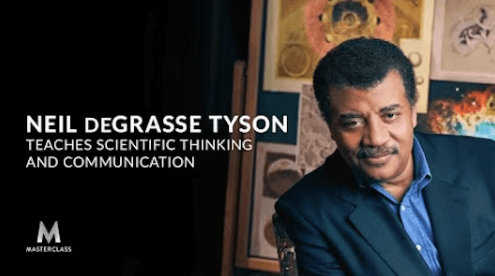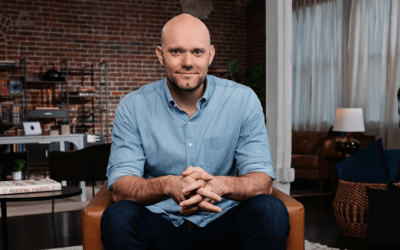🎁 Exclusive Discount Just for You!
Today only: Get 30% OFF this course. Use code MYDEAL30 at checkout. Don’t miss out!
Renowned astrophysicist Neil deGrasse Tyson teaches you how to find objective truths and shares his tools for communicating what you discover.
File Size: 6.10 GB
Neil deGrasse Tyson – MasterClass – Teaches Scientific Thinking and Communication

With a hit talk show and bestselling books, Neil deGrasse Tyson is one of the most popular figures in modern science. Now the influential astrophysicist teaches you how his mind works and how he connects with audiences. Learn to think like a skeptic, open your own mind through scientific literacy, distill data, and navigate bias to discover objective truths—and deliver your ideas in ways that engage, excite, and inspire.
Browse Lesson Plan
1. What You Know Is Not as Important as How You Think
Meet your new instructor: world-renowned astrophysicist, Emmy-nominated host, author, and science communicator Neil deGrasse Tyson. Neil welcomes you and discusses the importance of scientific thinking and communication.
2. The Frontier of Science
The frontier of science is a messy place. Neil takes you through the process of understanding the frontier’s landscape and explains the roles of hypothesis and theory in determining objective truths.
3. The Scientific Method
When we use the scientific method in the quest for objective truths, nature is the judge and jury. Neil shares some remarkable astrophysical examples of how this method plays out in real life and in our vast universe.
4. Be a Skeptic: Ask Questions
Asking questions is a tried-and-true component of scientific thinking. Neil talks about the processes behind informed skepticism as well as how to evaluate incoming scientific data.
5. Cognitive Bias
If you are human, then you are susceptible to cognitive bias. Neil defines some of the most common cognitive biases and reveals how our need to feel special may be getting in the way of our search for objective truths.
6. Beware of Cultural Bias
Cultural biases and assumptions affect how we treat one another, but they may be harder to spot than we think. Neil provides examples of conscious and unconscious cultural biases and explains how to avoid them.
7. Our Systems of Belief
Every personal system of belief contains identifiable biases that impact the ability to think scientifically. Neil talks about two of these biases and how inner beliefs can have a significant societal and scientific impact.
8. Scientific Measurement: Calculating the Incalculable
Neil explores one of his favorite subjects: scientific measurement. He distinguishes precision from accuracy and offers examples to illuminate the approximations that are inherent in any measurement.
9. Communication: It’s Not Enough to Be Right
Communicating objective truths convincingly is just as important as using methods of scientific thinking to find them. Neil shares his personal reason for this belief and some of his favorite tools of communication.
10. Preparing for Your Audience
To properly prepare for an audience, you need to get detailed information about whom you’re speaking to. Neil discusses how to consider demographics and how that influences his message.
11. Communication Tactics
Knowing what drives your audience can set you up for communication success. Neil reviews some of the key “tool belt items” he uses when speaking to groups.
12. Inspire Curiosity in Your Audience
Stoking curiosity is an essential component of effective communication. Neil demonstrates how to make the strategic delivery of information a powerful tool in your communication arsenal.
13. The Future of Our World
Neil presents his case for why scientific thinking and effective communication strategies are necessary for the progress of society—and why everything he’s discussed is just the beginning of what’s important to consider.
Course Features
- Lectures 0
- Quizzes 0
- Duration 10 weeks
- Skill level All levels
- Language English
- Students 74
- Assessments Yes





